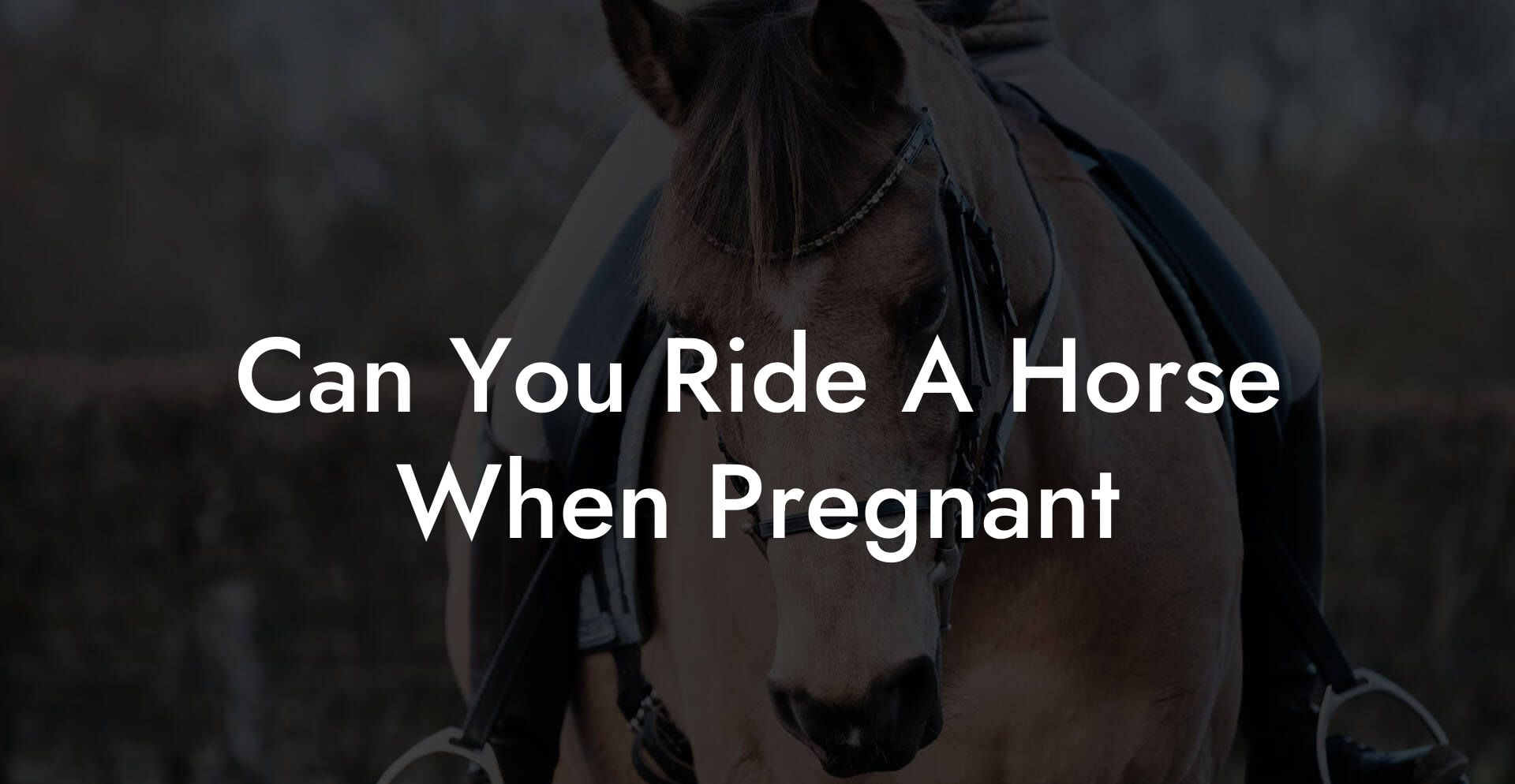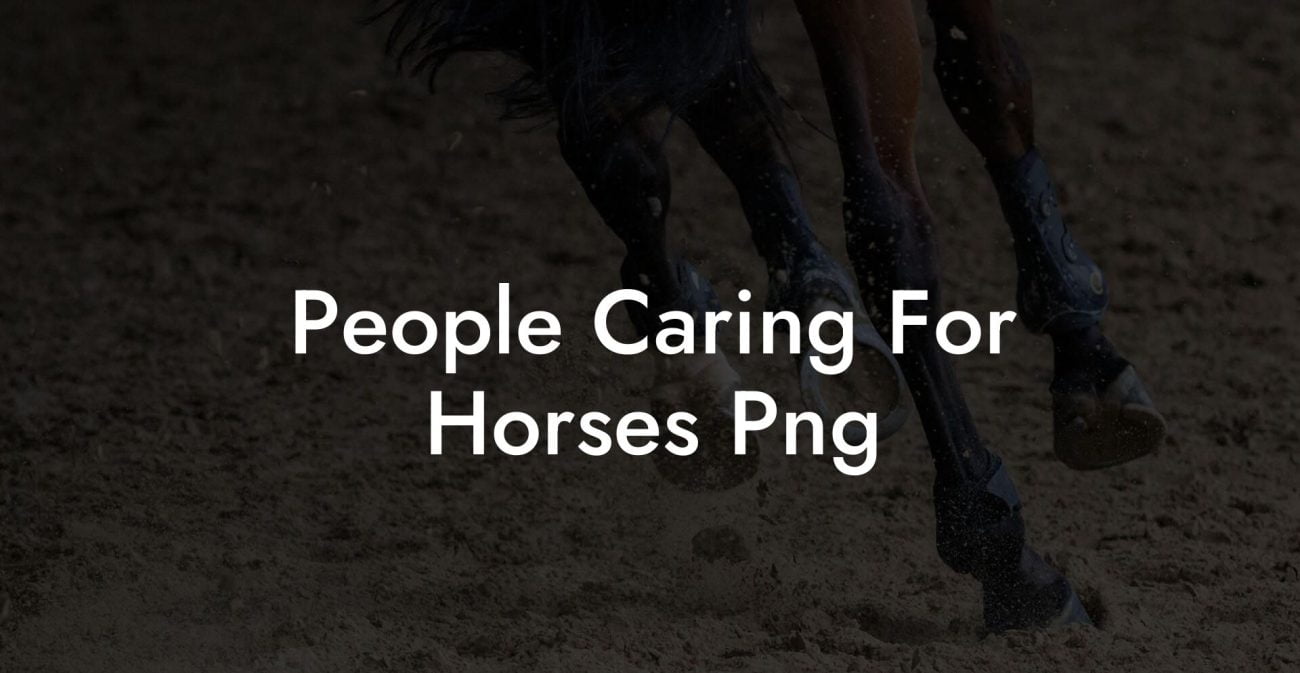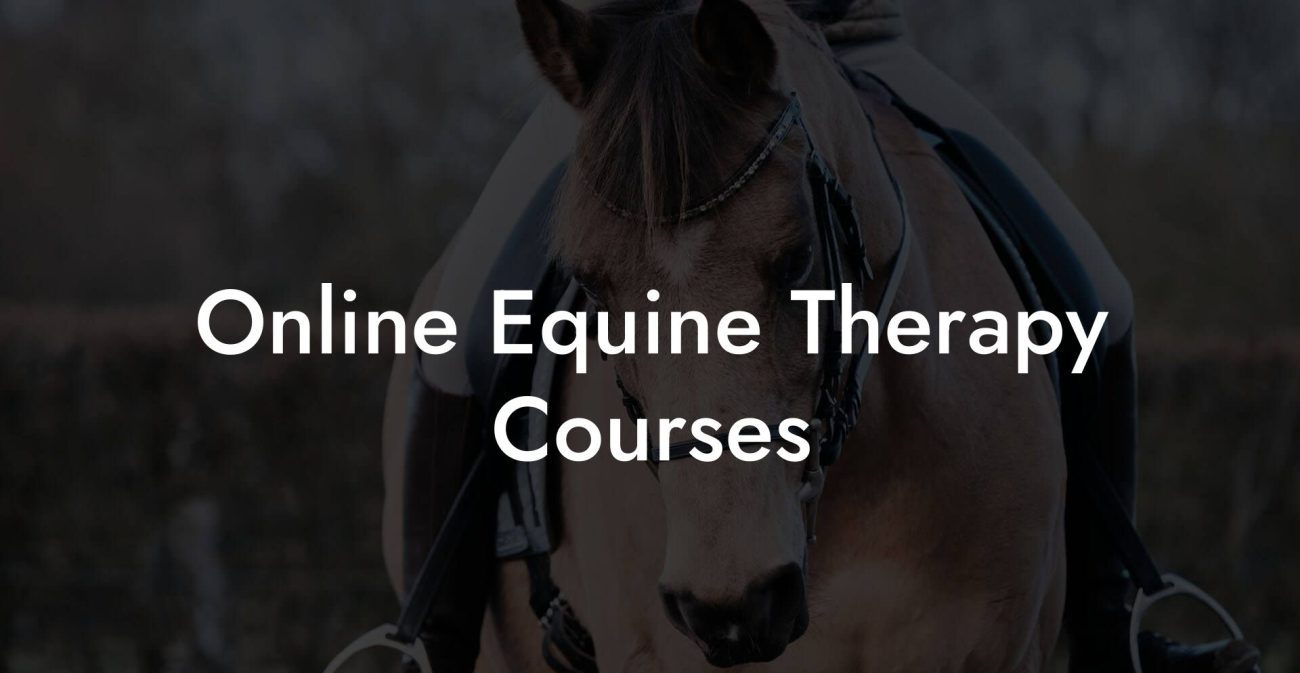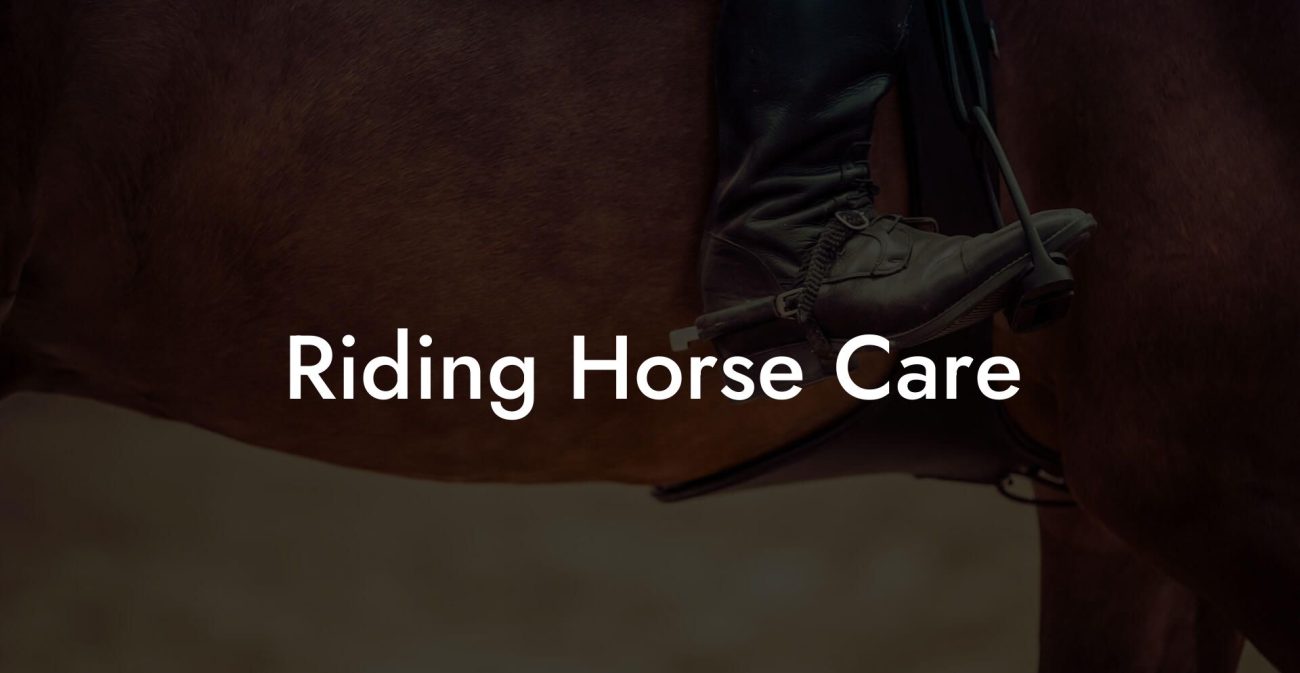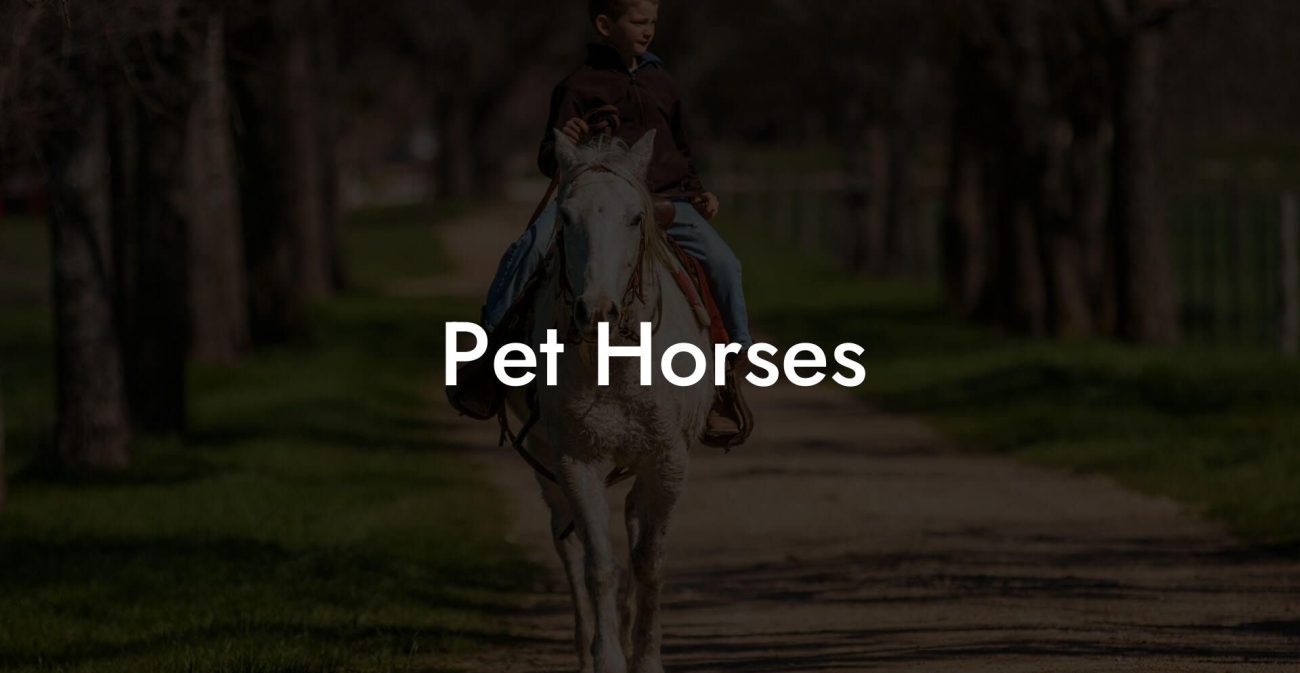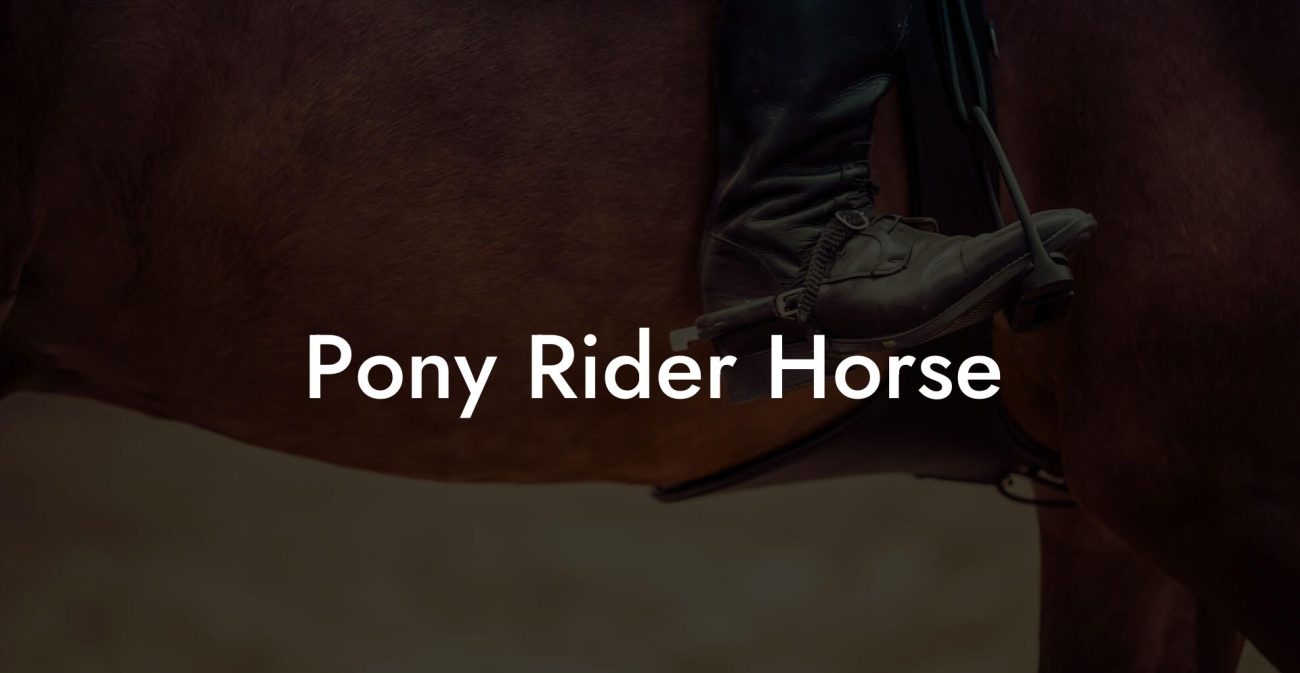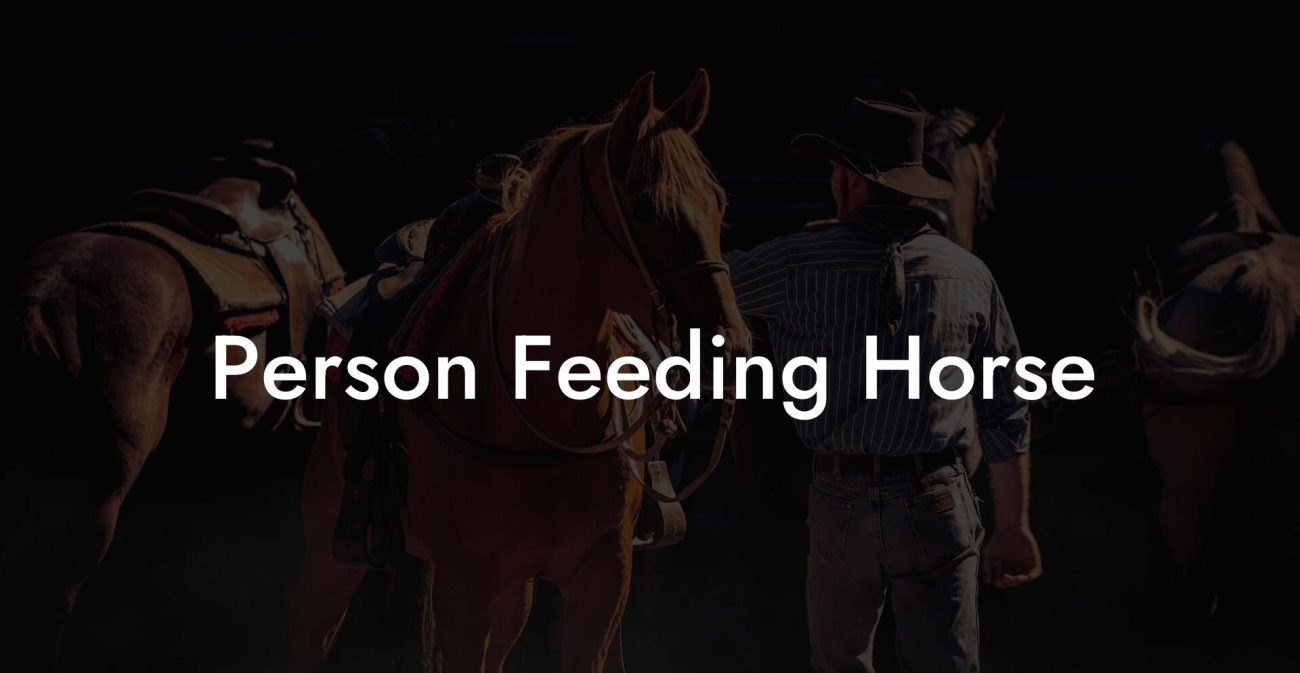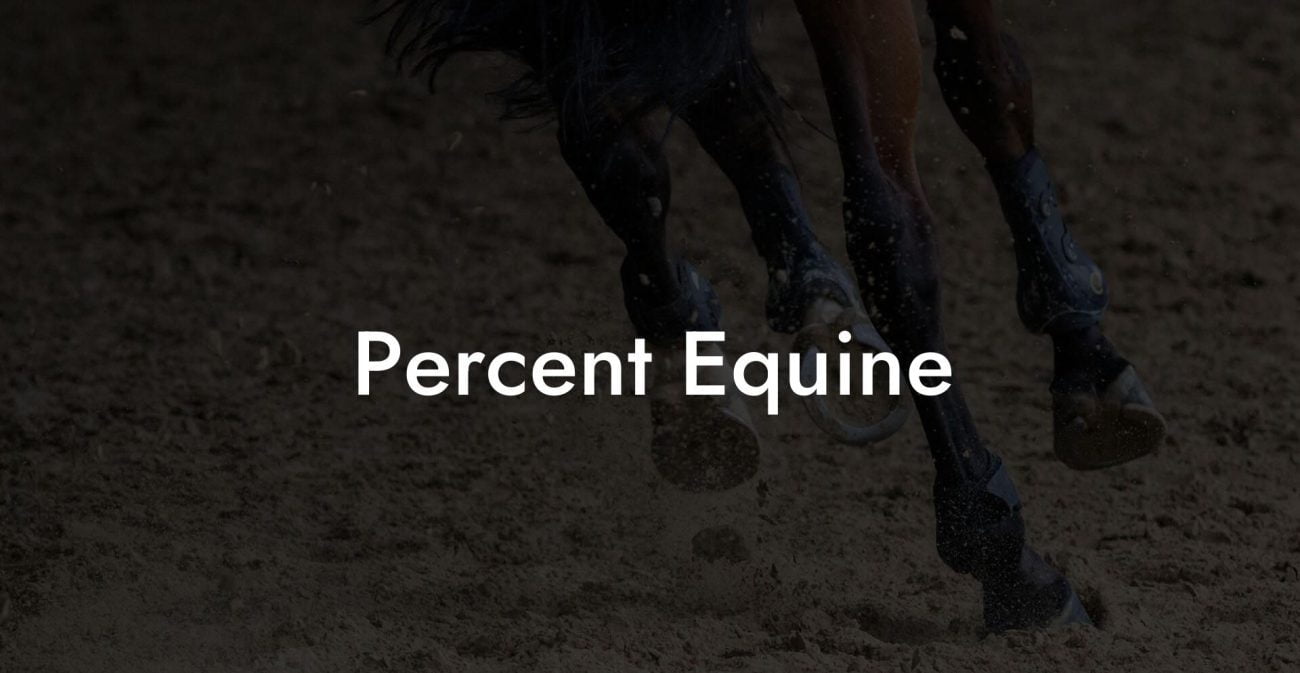Who knew that horseback riding could be as exhilarating as a roller coaster ride and as nerve-wracking as waiting for your favorite band's comeback tour? If you're expecting a little one and have a passion for equestrian adventures, you're probably wondering: can you ride a horse when pregnant? Saddle up, this in-depth guide is here to navigate the twists, turns, and hay bales of riding during pregnancy, all while keeping things fun, factual, and fabulously down-to-earth.
Quick Links to Useful Sections
- Can You Ride A Horse When Pregnant? The Big Question Answered
- Understanding Your Body and Changing Needs During Pregnancy
- Risks and Considerations: What the Experts Say About Horse Riding When Pregnant
- Benefits of Horse Riding During Pregnancy: Exercise, Mental Clarity, and More
- Expert Opinions, Medical Guidelines, and When to Reevaluate Your Riding Routine
- Tips and Techniques for a Safer Equestrian Experience During Pregnancy
- Pre-Ride Preparations
- During the Ride
- Post-Ride Recovery
- Alternative Themed Equestrian Activities During Pregnancy
- Resources and Community Support: Your Next Steps
- FAQs: Riding a Horse While Pregnant
- Your Next Steps: Embracing a Balanced, Empowered Equestrian Journey
Can You Ride A Horse When Pregnant? The Big Question Answered
When it comes to horseback riding during pregnancy, the short answer is: it depends. Just like picking the perfect meme for a mood, the decision involves variables like your personal health, the stage of your pregnancy, your riding experience, and of course, the advice of your healthcare provider. While some daring mamas in the saddle swear by the joy and exercise riding brings, others might find the risks too high, especially if you're a novice rider.
Experts agree that horse riding is a high-risk activity during pregnancy due to the potential for falls and sudden jolts. However, it’s not all doom and gloom, if you’re an experienced equestrian and your doctor gives you a thumbs-up, you might still be able to enjoy a few relaxed rides. Think of it as your personal balancing act between adrenaline and caution, with your baby bump in the mix.
In this guide, we'll dive deep into the science, safety precautions, and potential perks of horseback riding while pregnant. Whether you're a seasoned rider or a curious newbie, we’ll help you make an informed decision that feels as empowering as discovering your new favorite playlist.
Understanding Your Body and Changing Needs During Pregnancy
Pregnancy isn’t just about cute baby bumps and cravings for pickles at 3 a.m., it's also a time when your body is in full-on transformation mode. Hormonal changes, shifting center of gravity, and heightened ligament laxity are just a few of the physical phenomena you might experience. These changes affect your balance and coordination, which are crucial when you're up on a horse.
As your body adapts to nurture a growing life, you might notice that activities you once breezed through now require a bit more thought. For instance, your risk of falls might increase, and your reaction time could slow down due to extra weight around the midsection. On the flip side, maintaining an active lifestyle, if done safely, can improve your mood, boost circulation, and help you manage pregnancy-related discomforts.
Listening to your body is key. If you experience dizziness or discomfort while riding, it’s a signal to rethink your approach. A calm, mindful ride might be a refreshing alternative to the adrenaline-pumping, high-speed rodeo rides of your pre-pregnancy days.
Risks and Considerations: What the Experts Say About Horse Riding When Pregnant
Horse riding is one of those activities that brings a lot of fun, but also some genuine risks, especially for expectant mothers. Here are some of the primary concerns to keep in mind:
- Risk of Falls: A sudden bump, a slippery patch in the arena, or even an unpredictable horse can lead to falls, which could be dangerous for both you and your baby.
- Trauma and Impact: Even a minor jolt can disrupt the bond between you and your developing baby, especially during the first and third trimesters when the uterus is more vulnerable.
- Increased Ligament Laxity: Hormones such as relaxin make your joints looser, which, while great for childbirth, can compromise your stability on a moving horse.
- Exertion Levels: Intense physical exertion might lead to overheating or dehydration, both of which are concerns during pregnancy.
- Environmental Hazards: Outdoor arenas expose you to the elements, uneven ground, unpredictable weather, and other riders who might not follow the same cautious rules.
It might sound a bit like a rodeo of worries, but understanding these risks is the first step in managing them. Medical experts generally recommend erring on the side of caution, especially if you're not an experienced rider or if you have a high-risk pregnancy. Always consult with your obstetrician or healthcare provider before deciding to mount up.
The goal isn’t to scare you off riding forever, but rather to ensure that you make an informed choice that prioritizes your safety and that of your baby. With the right precautions, some women find a way to merge their passion with a sense of security and calm.
Benefits of Horse Riding During Pregnancy: Exercise, Mental Clarity, and More
Believe it or not, horseback riding can have its perks during pregnancy, if approached with care and respect for your body's limits. Here are a few benefits that might convince you to paddle your way into the equestrian world, even with a bun in the oven:
- Improved Posture and Core Strength: Riding a horse requires a stable core and a straight back, which can contribute to better posture. This extra support can alleviate some back pain often associated with pregnancy.
- Stress Relief: There’s something zen about spending time with horses. Their calming presence and the rhythmic motion of riding can help lower anxiety levels and boost your mood.
- Connection to Nature: Being outdoors and connecting with nature is a natural stress buster. The fresh air, open spaces, and natural beauty of an arena or trail can be a refreshing break from typical pregnancy stressors.
- Emotional Bonding: Many women find that the presence of a horse offers a unique sense of companionship and emotional support. This bonding can help counterbalance the emotional roller coaster of pregnancy.
- Low-Impact Exercise: For those in the later stages of pregnancy, riding can sometimes serve as a form of low-impact exercise, similar to walking or swimming, which helps maintain cardiovascular health without putting too much strain on your joints.
That being said, the potential benefits come bundled with the need for caution. If you’re considering reining in your inner cowgirl, it’s crucial to weigh these benefits against the inherent risks. Remember: every pregnancy is unique, and what works for one person might not be suitable for another.
For many expectant mothers, the mental clarity and stress relief provided by spending time on a horse can be a game changer. It’s almost like swapping out a hectic day of scrolling through social media for a few minutes of pure, unadulterated equine therapy.
Expert Opinions, Medical Guidelines, and When to Reevaluate Your Riding Routine
Let’s be real: nothing beats advice coming straight from the experts. When pondering whether to stick with the saddle during pregnancy, it’s important to consult with health professionals, your obstetrician, a physical therapist, and even an experienced riding instructor.
Medical guidelines typically advise that expectant mothers avoid high-risk activities, including horse riding, particularly during the later stages of pregnancy. The consensus is that the potential for falls and abrupt impacts can be hazardous. However, in cases where the pregnancy is uncomplicated and the rider is exceptionally skilled, some experts suggest that moderate, controlled riding might be acceptable, if, and only if, every precaution is taken.
Here are some expert-recommended steps to consider:
- Frequent Medical Consultations: Regular check-ups with your healthcare provider are a must. They can assess any changes in your physical condition and advise when it might be safe to continue or pause riding.
- Customized Riding Plans: Discuss modifications with your riding instructor. A tailored plan can include slower speeds, more controlled environments, and additional safety measures, like body protection gear.
- Listen to Your Body: If you experience any discomfort, dizziness, or unusual pain, it's time to reassess. The safest ride is one that stops at the first sign of trouble.
- Emergency Preparedness: Ensure that both you and the stable have a clear emergency action plan. A safety net is essential when you’re balancing the joys of riding with the unpredictability of pregnancy.
These expert opinions underscore the importance of a personalized approach. There isn’t a one-size-fits-all answer, and much like choosing the right filter for your Instagram story, it’s all about finding what best suits your personal style and safety needs.
Ultimately, whether or not you continue to ride will hinge on a careful balance between enjoying your passion and ensuring the well-being of you and your baby. Equip yourself with robust advice, thoughtful modifications, and a clear understanding of both risks and rewards before you Horsepower your way into your next riding session.
Tips and Techniques for a Safer Equestrian Experience During Pregnancy
If you and your doc decide that a gentle trot is permissible, here are some tips and best practices to ensure your equestrian adventures remain as safe as they are satisfying:
Pre-Ride Preparations
Preparing for a ride is much like prepping for a big concert, you want everything to be just right. Start with a solid warm-up to loosen those muscles and get your heart rate in check. Hydration is non-negotiable; think of your water bottle as your VIP pass to a safe ride.
Dress in supportive athletic wear that provides both comfort and stability. Consider investing in a maternity support belt for extra reassurance during those bumpy rides. And if you’re new to the riding scene post-pregnancy, consider a refresher course with a certified instructor to rebuild confidence and technique.
During the Ride
Once you’re on the horse, stick to flat, even terrain. Avoid high-speed runs, jumps, or any maneuvers that cause abrupt shifts in balance. Keep both hands on the reins at all times, and opt for a double-rein system if available, it spreads the control across both sides, reducing the risk of a snap decision (or a snapped rein!).
Listen to your body’s signals. If you start to feel fatigued, lightheaded, or experience any discomfort, it’s time to slow down or stop. Riding should feel like a leisurely cruise, not a high-stakes race.
Post-Ride Recovery
After your ride, take time to cool down and stretch gently. Light stretching, deep breathing exercises, and perhaps even a soothing cup of herbal tea can do wonders for your muscles and your overall state of mind. Monitoring your body's response post-ride is as important as the ride itself, think of it as your post-concert wind-down session that helps you appreciate the moment and plan for the next safe outing.
By incorporating these tips and techniques, you create an environment that prioritizes safety without sacrificing the joy and freedom of horseback riding. It’s about adapting your passion to fit your current lifestyle, because even if pregnancy changes the ride, it doesn’t have to cancel your ticket to the equestrian world.
Alternative Themed Equestrian Activities During Pregnancy
If the idea of riding a full-speed gallop feels too adventurous (or risky) these days, fear not, there are plenty of equestrian-inspired activities that let you stay connected to horses without taking on the full brunt of their power.
One fun alternative is to engage in groundwork with the horses. This might include grooming, leading, or even spending quality time simply bonding with your equine friends. Not only is this incredibly soothing, but it’s also a way to stay active without the risk of falls.
Another option is to explore therapeutic riding programs designed specifically for expectant mothers. These sessions typically focus on balance, gentle movements, and deep relaxation techniques, kind of like a yoga class with a four-legged companion. Such programs can give you all the benefits of interacting with horses while significantly reducing the physical risks associated with riding.
For those who crave the imagery of riding but want to dial down the intensity, consider virtual reality or simulation-based equestrian experiences. As technology evolves, these innovative approaches allow you to experience the sensation of riding in a controlled, low-impact setting. It’s a futuristic take on an age-old passion, blending modern tech with equestrian charm.
Ultimately, the goal is to strike a balance between maintaining your hobbies and safeguarding your health and that of your baby. Whether you choose active riding or a more hands-on, ground-level experience, your well-being should always be at the forefront of your decision-making process.
Resources and Community Support: Your Next Steps
Venturing into the world of horse riding during pregnancy can feel like entering an exclusive club with its own set of insider tips, challenges, and triumphs. The good news is you’re not alone on this journey, plenty of communities, both online and offline, are ready to welcome you with open arms and plenty of advice.
Start by connecting with local equestrian clubs and maternal wellness groups. Many stables and riding centers offer specialized programs or can put you in touch with a network of experienced pregnant riders who know the lay of the land. Social media platforms and forums, like specific groups on Facebook or Reddit’s equestrian threads, have active discussions where members share their own stories, safety tips, workout modifications, and sometimes even hilarious riding mishaps.
Additionally, consider subscribing to newsletters or blogs dedicated to both pregnancy wellness and equestrian lifestyles. They often feature expert interviews, the latest research on maternal health and physical activity, and advice on everything from nutritional tips to the best maternity riding gear.
Finally, don’t be afraid to speak up during your medical appointments. Ask about tailored exercise plans, and request recommendations for prenatal fitness programs that may include horse riding. Your healthcare team can be an invaluable resource when it comes to balancing your hobbies with your pregnancy needs.
Remember, your journey is unique, and your next steps should empower you to make decisions that align with both your passion for horses and your commitment to a healthy pregnancy. With the support of specialized resources and a community that truly understands the equestrian lifestyle, you’re well on your way to navigating this exciting chapter with confidence.
FAQs: Riding a Horse While Pregnant
To help clear up any lingering doubts, we’ve compiled some of the most frequently asked questions about horse riding during pregnancy. Dive in and get the lowdown on all things equestrian and maternal health:
1. Is it safe to ride a horse when pregnant?
Safety largely depends on individual circumstances, including your riding experience, your stage of pregnancy, and your overall health. Many experts advise extreme caution or to avoid it altogether, particularly in the later stages of pregnancy.
2. What are the main risks involved in horseback riding during pregnancy?
The primary concerns include the risk of falls, trauma from sudden impacts, increased ligament laxity which can affect balance, and the potential for physical exertion leading to overheating or dehydration.
3. Can experienced riders continue to ride during pregnancy?
Experienced riders with uncomplicated pregnancies may be able to ride under controlled conditions and with medical approval. However, safety measures should be heightened and riding activities adjusted for comfort.
4. What precautions should I take if I decide to ride?
Always consult your healthcare provider beforehand, opt for slower, more controlled riding sessions, wear supportive and protective gear, and ensure you’re riding in environments with even terrain and minimal risk.
5. Are there any benefits to riding a horse while pregnant?
Some women enjoy benefits like improved posture, stress relief through connection with nature and animals, and a sense of freedom. However, these benefits must be balanced against the risks.
6. What alternatives can I consider if riding seems too risky?
Consider alternative equestrian activities, such as groundwork with the horse, therapeutic riding programs, or even simulation-based experiences that offer the joy of riding without the hazards.
7. Can I resume riding after my baby is born?
Most experts recommend waiting until after your postpartum recovery and receiving clearance from your healthcare provider before returning to riding.
8. How does pregnancy affect my balance and coordination while riding?
Hormonal changes and a shifting center of gravity can affect your balance, making you more prone to falls or missteps. Adjustments to your riding technique and increased caution are necessary.
9. Are there professional guidelines or organizations that address this topic?
While specific guidelines on riding during pregnancy vary, many obstetricians and equestrian organizations suggest erring on the side of caution and opting for low-risk activities.
10. Should I stop riding immediately if I experience discomfort during a session?
Absolutely. Listening to your body is crucial. If you experience any discomfort, pain, or dizziness while riding, it’s a clear sign to stop and consult your healthcare provider.
Your Next Steps: Embracing a Balanced, Empowered Equestrian Journey
Navigating the world of horse riding during pregnancy isn’t just about dodging a tumble, it’s about making thoughtful, informed choices that reflect your unique circumstances and passions. Whether you ultimately decide to ride or opt for a more grounded connection with these majestic creatures, your journey is defined by how you balance risk and reward.
Embrace the creativity of customizing your equestrian experience. Perhaps you’ll mix a few gentle rides with ample time for horse grooming, bonding moments, and participation in community rides designed for expectant mothers. The key is to stay informed, remain flexible, and always put your health and your baby’s well-being first.
Continue to connect with experts, seek out supportive communities, and remain open to alternatives that keep your love for horses alive while honoring your body’s changing needs. Every step you take is a testament to your resilience and passion, a reminder that sometimes, the bravest rides are those taken with care, caution, and lots of heart.
Your journey into combining the wild spirit of horse riding with motherhood can be as exhilarating and safe as you make it. So, here’s to navigating new paths, celebrating every little victory along the way, and crafting an empowered equestrian experience that fits perfectly into your unique life narrative.
Remember, the saddle is just one part of your adventure, your strength, creativity, and support network are the reins that truly guide your ride into a future where passion meets prudence.

